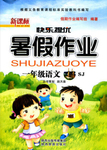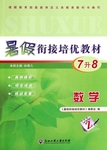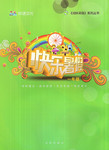题目内容
8.Students who say they never or hardly ever use dictionaries often speak English well but usually write poorly,because they make many mistakes.The students who use dictionaries most do not learn especially well either.The ones who look up every new word do not read fast.Therefore they do not have time to read much.Those who use small two-language dictionaries have the worst problems.Their dictionaries often give only one or two words as translations of English.But one English word often has many translations in a foreign language and one foreign word has many translations in English.
The most successful students are those who use large college edition dictionaries with about 100,000 words but do not use them too often.When they are reading,these students first try to get the general idea and understand new words from the context.Then they reread and use the dictionary to look up only key words that they still do not understand.They use dictionaries more for writing.If they are not sure how to spell a word,or divide it into syllables (音节),they always use a dictionary.Also,if they think a noun might have an unusual plural form,they check these in a dictionary.
32.The writer thinks thatC.
A.choose a good dictionary,and you'll be successful in learning English
B.dictionaries are not necessary to the students who learn English
C.it is very important for students to use good dictionaries properly
D.using dictionaries very often can't help to improve writing
33.According to the passage,which of the following is wrong?B
A.Dictionaries have little effect on learning to speak English.
B.Whatever new words you meet while reading,never use dictionaries.
C.Small two-language dictionaries have serious defects (缺陷).
D.Reading something for the first time,you'd better not use dictionaries.
34.When in the reading does the writer advise students to use a good dictionary?D
A.At the beginning of the reading
B.At the end of the reading
C.During the first reading
D.After the first reading
35.This passage mainly tells usD.
A.students shouldn't use small two-language dictionaries
B.what were the defects of small two-language dictionaries
C.why students should use large college edition dictionaries
D.what dictionary students should choose and how to use.
分析 本文属于说明文阅读,作者通过这篇文章主要向我们描述了关于学生在学习英语的时候使用字典的问题,该如何用字典,用什么样的字典最合适.
解答 32.C.推理判断题.根据第二段The students who use dictionaries most do not learn especially well either可知作者认为合理的使用好字典对学生而言是很重要的;故选C.
33.B.细节理解题.根据最后一段Also,if they think a noun might have an unusual plural form,they check these in a dictionary可知有些生词是应该通过字典了解的;故选B.
34.D.细节理解题.根据最后一段When they are reading,these students first try to get the general idea and understand new words from the context.Then they reread and use the dictionary to look up only key words that they still do not understand可知作者建议学生在第一次阅读后使用字典查阅生词;故选D.
35.D.推理判断题.根据第二段The students who use dictionaries most do not learn especially well either可知这篇文章主要告诉我们学生应该如何选择和使用字典;故选D.
点评 考察学生的细节理解和推理判断能力,做细节理解题时一定要找到文章中的原句,和题干进行比较,再做出正确的选择.在做推理判断题不要以个人的主观想象代替文章的事实,要根据文章事实进行合乎逻辑的推理判断.

 新课标快乐提优暑假作业陕西旅游出版社系列答案
新课标快乐提优暑假作业陕西旅游出版社系列答案 暑假衔接培优教材浙江工商大学出版社系列答案
暑假衔接培优教材浙江工商大学出版社系列答案 欣语文化快乐暑假沈阳出版社系列答案
欣语文化快乐暑假沈阳出版社系列答案| A. | as was he | B. | as he was | C. | he was as | D. | was he as |
He was about eleven and in an old but clean shirt,which was obviously too large for him.No sooner had I begun to speak than he opened the (31)Cin his hand and took out the tools of shoe-polishing.He (32)Bdown,took off my leather shoes,and began to shine them.He was busy doing his work (33)Aheavy rain began to pour down.People rushed to the café (34)Cfrom the rain.More and more people crowded (35)Cand gradually (36)D the boy from me.
Hours passed,and it turned (37)A.I had no shoes on my feet,and began to (38)Bwhere the boy had been.I thought he would not (39)Cmy shoes,and I would have to go home on my bare feet.(光脚)
When it was near midnight the (40)Astopped,and there were fewer and fewer people in the café.As the café was to be (41)D,I had to move to the door,with my head (42)B. (43)B,I found that a boy of about eleven,looking very familiar,was sleeping at the (44)B with his head leaning against the wall and his upper body being (45)B.He held a package wrapped by his shirt tightly in his arms.I shook him slightly and woke him up.He (46)Cup and rubbed his eyes for a while before he recognized me.Then he opened the package (47)D,gave me my leather shoes,and apologized to me shyly.I (48)Chim and wrapped him with his (49)D shirt,which had wrapped my leather shoes.On my way home,the (50)Cof the boy still stayed in my mind.
| 31.A.bag | B.package | C.box | D.suitcase |
| 32.A.seated | B.bent | C.put | D.turned |
| 33.A.when | B.after | C.because | D.since |
| 34.A.protecting | B.resting | C.hiding | D.=preparing |
| 35.A.out | B.away | C.in | D.off |
| 36.A.pushed | B.stopped | C.guarded | D.separated |
| 37.A.dark | B.light | C.black | D.bright |
| 38.A.ask | B.wonder | C.watch | D.talk |
| 39.A.shine | B.keep | C.return | D.carry |
| 40.A.rain | B.coffee | C.time | D.work |
| 41.A.opened | B.locked | C.stopped | D.closed |
| 42.A.crashed | B.dropped | C.raised | D.held |
| 43.A.shortly | B.surprisedly | C.sadly | D.immediately |
| 44.A.table | B.door | C.bed | D.café |
| 45.A.wet | B.bare | C.pale | D.cold |
| 46.A.stayed | B.say | C.jumped | D.got |
| 47.A.finally | B.suddenly | C.unfriendly | D.hurriedly |
| 48.A.recognized | B.forgave | C.appreciated | D.inspired |
| 49.A.dirty | B.new | C.small | D.unfit |
| 50.A.feature | B.shirt | C.image | D.form |